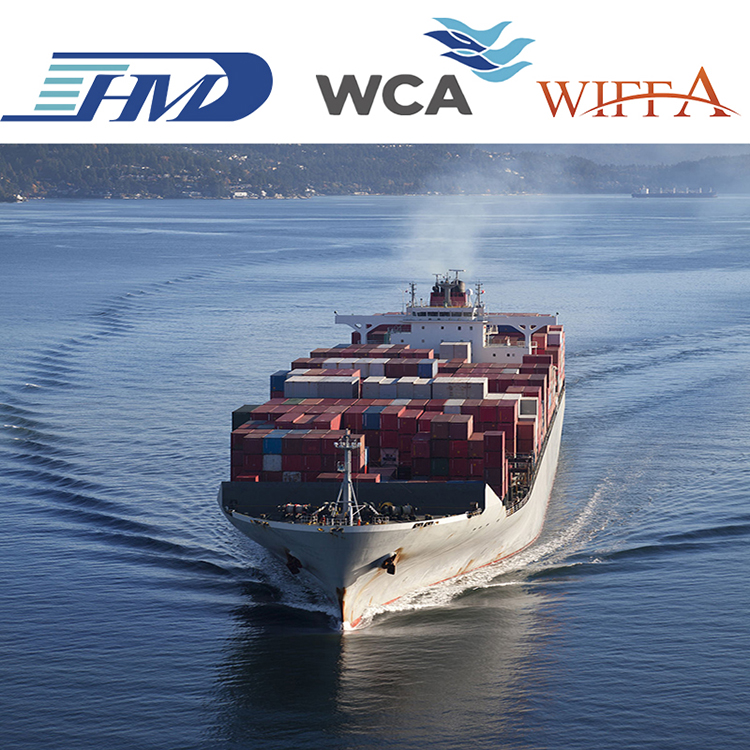If the United States and Iraq broke out in the war, the shipping industry directly affected the geom
- Author:Hank
- Source:Xinde Maritime
- Release Date:2019-08-23
We act asFreight forwardingAs a member of the industry, the international situation will have an impact on our business, so we need to constantly pay attention to the international situation to change this.


Trade in dry bulk vessels, container ships and ro-ro ships in the Middle East Gulf region is less important than global trade. By dry weight, dry bulk carriers in the region account for about 3% of global exports.
However, the extent to which such trade is affected is closely related to the population that depends on the Middle East Gulf as a hub hub. The cost of war risk is being translated into higher surcharges for container ships entering the area, which are ultimately passed on to consumers.
In the dry bulk carrier market, imports from the Middle East Gulf region are greater than exports, but the gap has been decreasing recently. Increasing transportation costs may reduce the economics of some of the region's exports.
However, the extent to which such trade is affected is closely related to the population that depends on the Middle East Gulf as a hub hub. The cost of war risk is being translated into higher surcharges for container ships entering the area, which are ultimately passed on to consumers.
In the dry bulk carrier market, imports from the Middle East Gulf region are greater than exports, but the gap has been decreasing recently. Increasing transportation costs may reduce the economics of some of the region's exports.
Rising oil prices mean more fuel costs for ships, while fuel costs account for more than 50% of transportation costs. Positive conflicts will further affect the oil exports of all Arab oil producers, which in turn will lead to further increases in oil prices. Higher fuel prices will also increase the extra cost of shipping the goods.
So far, the impact of Iranian oil production cuts on the oil market is minimal. For some buyers, the impact of the global economic environment on oil prices exceeds the impact of lower crude oil production.
Despite this, sanctions seem to be pushing up oil pricing. Regardless of the direct impact of the Iranian conflict on the route, oil prices will rise and shipowners will pay more for ship operations.
In addition, the implementation of IMO's 2020 Sulfur Limits will add additional costs and will have a significant impact on the fuel market in the coming months.
So far, the impact of Iranian oil production cuts on the oil market is minimal. For some buyers, the impact of the global economic environment on oil prices exceeds the impact of lower crude oil production.
Despite this, sanctions seem to be pushing up oil pricing. Regardless of the direct impact of the Iranian conflict on the route, oil prices will rise and shipowners will pay more for ship operations.
In addition, the implementation of IMO's 2020 Sulfur Limits will add additional costs and will have a significant impact on the fuel market in the coming months.
The current tension has little impact on shipping. The worst is that the cost of insurance and escort safety has risen slightly, and a small number of shipowners have been affected.
The disruption will continue, but overall, there has not been a systematic response to any shipping market so far, thus proving that regional trade suspension is a serious risk.
As always, the shipping industry is still concerned with its traditional and more practical natural enemies in most ship types – the high number of ships leads to lower returns.
The escalation of the Iranian conflict will have a negative impact in the short term, but as the dispute is resolved, the market will rebound.
All charts are based on actual ship movements at the port level, combined with advanced logic stratification to explain the summary of commodity flows from the berth level to the national and regional levels.
The disruption will continue, but overall, there has not been a systematic response to any shipping market so far, thus proving that regional trade suspension is a serious risk.
As always, the shipping industry is still concerned with its traditional and more practical natural enemies in most ship types – the high number of ships leads to lower returns.
The escalation of the Iranian conflict will have a negative impact in the short term, but as the dispute is resolved, the market will rebound.
All charts are based on actual ship movements at the port level, combined with advanced logic stratification to explain the summary of commodity flows from the berth level to the national and regional levels.


